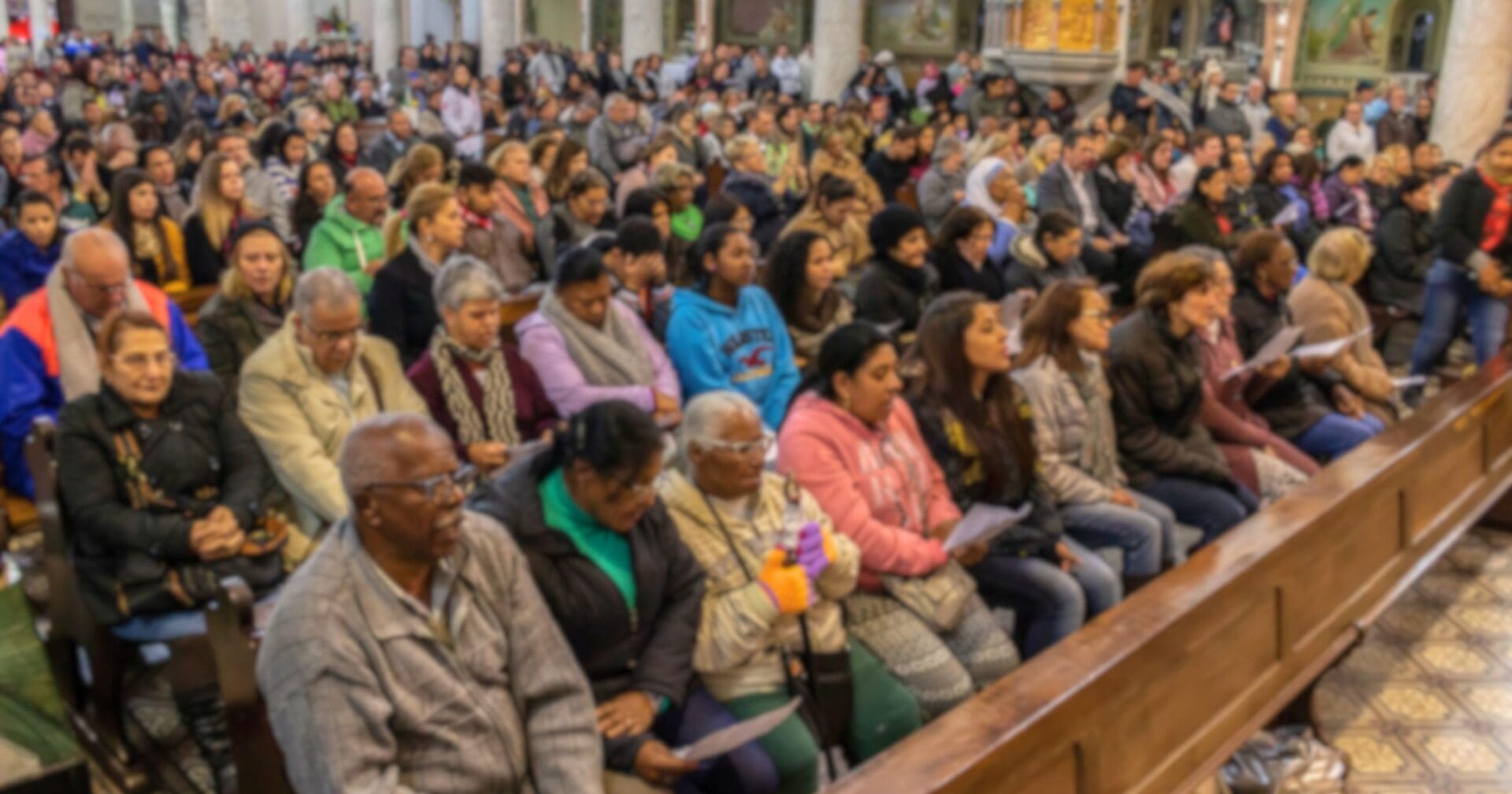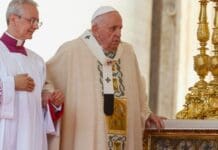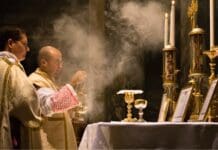For most, the thought probably hasn’t even crossed their mind when they go to Church every Sunday. The most common lay explanation is that the “masses” come to celebrate the Eucharist and thus the name is simply a shortened form of the word. However, Eucharistic Celebration in the Church has a complex history that eventually gave rise to the term used today. So why exactly do we call it Mass?
As it turns out, Mass is not simply a shortened form of “masses.” Instead, the name is derived from the Latin phrase spoken at the conclusion of every celebration, “Ite, missa est.” Translated to English, the phrase means “Go, it [the assembly] is dismissed. Missa shares the same Latin root as missile, essentially meaning to go forth.
The phrase is one of the oldest of the Roman Rite, first recorded in the sixth century A.D., although it is possible it was in use as early as the third century A.D. In the traditional Latin context, missa simply means a dismissal. However, over time the association with Eucharistic Celebration had it take on a deeper meaning for Catholics. The dismissal came to imply a mission, a mission to love and to serve the Lord. In his apostolic exhortation of 2007 Sacramentum caritatis, The Sacrament of Charity, Pope Benedict XVI said that:
“In antiquity, missa simply meant ‘dismissal’. In Christian usage, however, it gradually took on a deeper meaning. The word ‘dismissal’ has come to imply a ‘mission’. These few words succinctly express the missionary nature of the Church” – Sacramentum caritatis, Pope Benedict XVI
Eucharistic Celebration in the form of Mass is one of the longest standing traditions in the history of Church, and formed the bedrock of the Faith in its infancy that has continued for over 1900 years to today. Many verses present in the Bible lend credence to this.
“The cup of blessing that we bless, is it not a participation in the blood of Christ? The bread that we break, is it not a participation in the body of Christ? Because the loaf of bread is one, we, though many, are one body, for we all partake of the one loaf.” – 1 Corinthians 10:16-17
Early Church Fathers also write on the importance of Mass. Saint Justin Martyr in his first apology, only a century after the Ascension of Jesus Christ, writes about the Eucharistic Celebration:
“On the day called Sunday there is a meeting in one place…the memoirs of the apostles or the writings of the prophets are read as long as time permits. When the reader has finished, the presider in a discourse urges and invites us to the imitation of these noble things. Then we all stand up together and offer prayers. And, as said before, when we have finished the prayer, bread is brought, and wine and water, and the presider similarly sends up prayers and thanksgiving to the best of his ability, and the congregation assents, saying the Amen; the distribution, and reception of the consecrated elements by each one, takes place and they are sent to the absent by the deacons” – First Apology, Saint Justin Martyr
Editorial credit: Alf Ribeiro / Shutterstock.com


















According to St Thomas Aquinas, the Latin phrase means “it has been sent”, and refers to the Eucharist being offered up (or “sent”) to God the Father. The Mass is an offering, a sacrifice, that is sent (missa) to God.
This is a beautiful perspective!
This is beautiful
Thank you, Love to read you articles here and Facebook!
Thank you so much for sharing the article about our Catholic Faith…I love reading it., it nourishes my soul ,
deepened my faith and relationship with our Lord Jesus Christ..
Comment:very enlightening didn’t know thats where it’s from. thanks.
This is great reading. My Adult son was just asking me about this the other day but I didn’t have an answer. Thanks, quite enlightening.
I am yet to comprehend the explanation on the meaning of ‘Mass’, is there any way you can simplify or buttress the meaning.
The word “Mass” comes from the dismissal after the final blessing, “ite, missa est”. In Spanish you’d say “Misa” and French “Messe” for Mass.
So…Missa (est)—Messe—Mass.